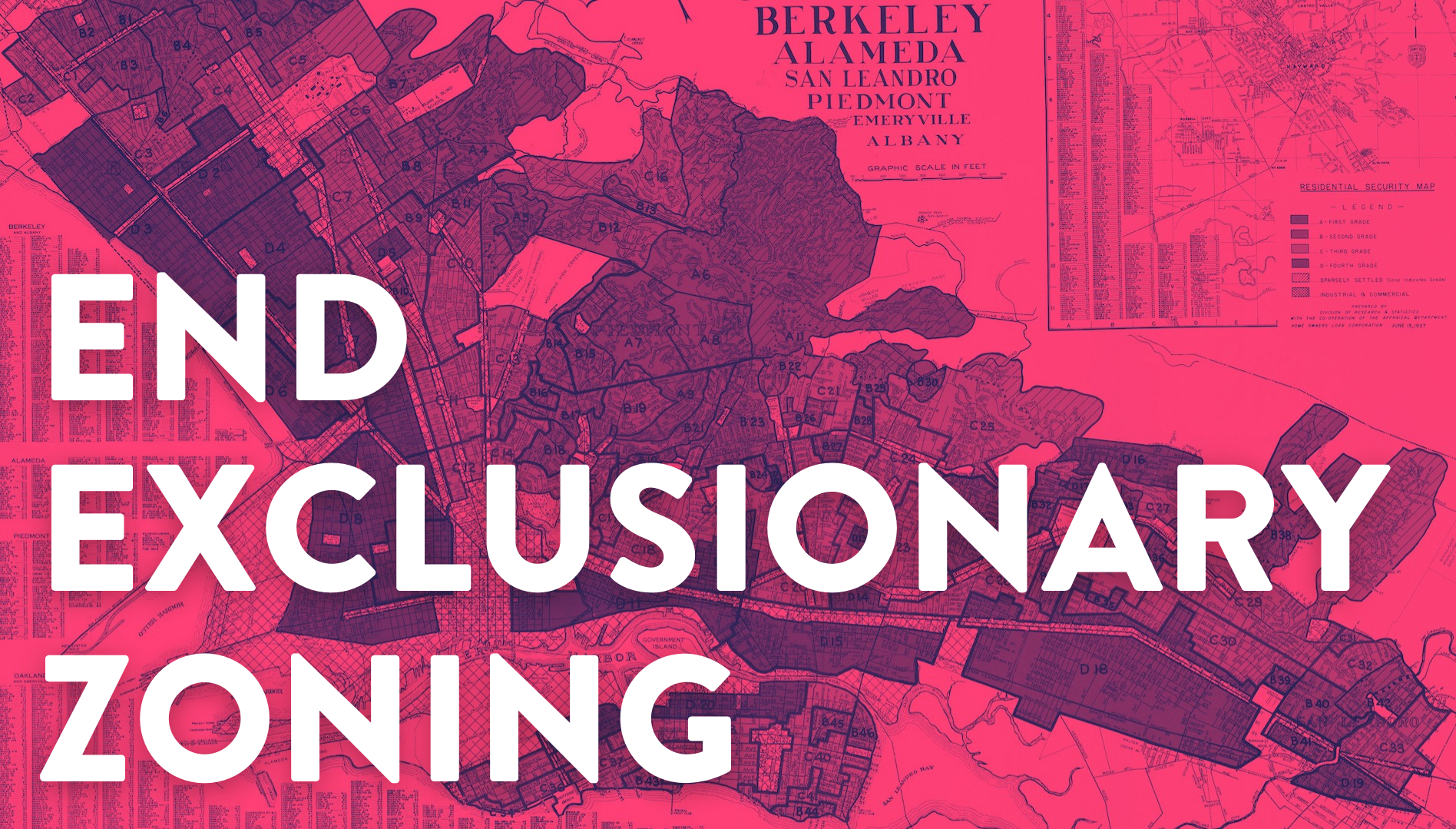Help End Exclusionary Zoning in Berkeley!
Berkeley City Council

It’s long past time to end exclusionary zoning in Berkeley. Join the Housing Action Coalition (HAC) and YIMBY Action, East Bay in urging Berkeley’s City Council to reform Berkeley’s racist and outdated zoning laws by legalizing small multi-family apartment buildings throughout the city. Single-family home only zoning was intentionally designed to perpetuate racial segregation. Today, it continues to deny communities of color equal access to housing, education, and employment opportunities, as well as public amenities. By changing these long standing policies of exclusion, Berkeley can begin to right these wrongs.
Legalizing multi-family housing also represents a major step toward solving our severe housing shortage and affordability crisis, the impact of which falls disproportionately on communities of color, by allowing more affordable housing to be built more widely.
Fortunately, Berkeley’s Mayor Jesse Arreguin, Vice Mayor Lori Droste, Councilmember Terry Taplin, Councilmember Ben Bartlett, Councilmember Rigel Robinson, and Councilmember Kesarwani are leading proponents of ending exclusionary zoning and legalizing more affordable multi-family homes to be built throughout the city. Now it’s time to let every City Councilmember know that Berkeley must enact zoning reform so that the city can become the inclusive and diverse community it professes to be.
To:
Berkeley City Council
From:
[Your Name]
As a Berkeley resident, I strongly support putting an end to Berkeley’s woefully outdated and exclusionary zoning laws and urge you to reform our zoning laws to allow for building multi-family homes throughout the city. As you well know, single-family home only zoning was intentionally designed to perpetuate racial segregation. Today, it continues to deny communities of color equal access to housing, education, and employment opportunities, as well as public amenities. By changing these long standing policies of exclusion, Berkeley can begin to right these wrongs.
Legalizing multi-family housing will also go a long way toward solving our severe housing shortage and affordability crisis, the impact of which falls disproportionately on communities of color, by allowing more affordable housing to be built more widely.
Looking at all the ways our outdated, exclusionary zoning laws perpetuates race and class discrimination, and exacerbates our city's housing shortage and affordability crisis, it’s hard to see why Berkeley has continued to permit such antiquated and detrimental laws to this day. I urge you to enact zoning reform without delay so that Berkeley can be the inclusive and diverse community it professes to be.

.png)